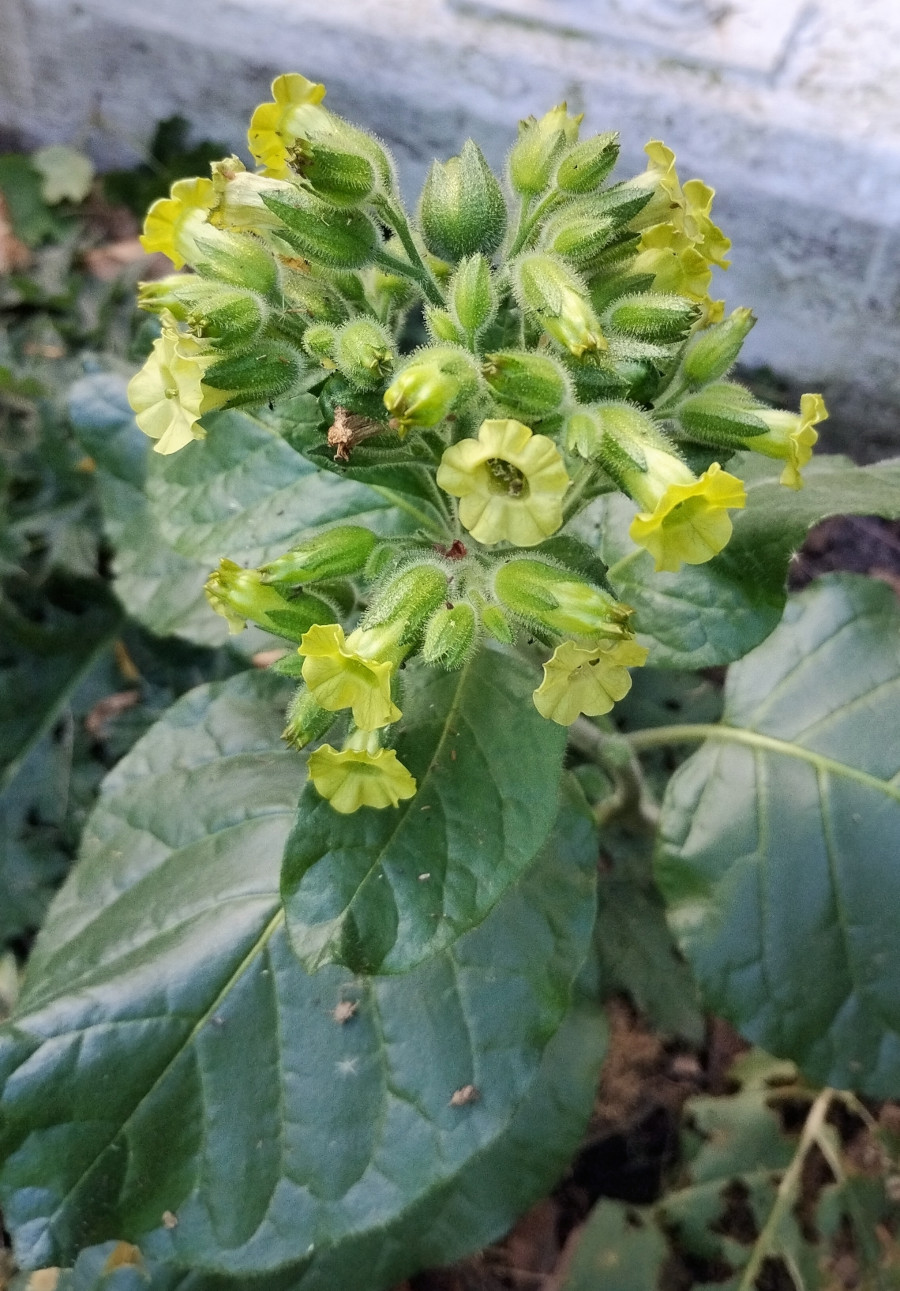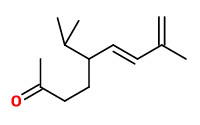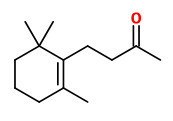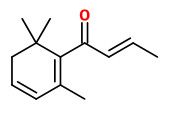Nicotiana rustica L. - Solanaceae - Aztec tobacco, strong tobacco, Махо́рка (russ.), Bauern-Tabak, Rundblatt-Tabak
Annual herbaceous plant, 0.60 to 1.20 m high, native from Mexico to Peru and Bolivia; leaves are simple, broad-oval, petiolate; flowers pale-yellow to green.
A volatile flower oil of N.rustica, obtained by methylene chloride extraction followed by vacuum-steam distillation/n-hexane extraction, identified nicotine (25.9%), aromadendrene (11.2%), (Z)-3-hexenol (10.4%), decene (6.2%), eremophilene (5.2%), and methylheptanone/heptenol (3.6%) as major components.
[Schlotzhauer, W.; Horvat, R.; Chortyk, O.; Nottigham, S.; Jackson, D. Comparison of the volatile flower oils
of Nicotiana rustica and N forgetiana. J. Essent. Oil Res. 1995, 7, 265-269]
Headspace analysis of scent emissions from the flowers of Nicotiana species showed th major volatiles of N.rustica flowers were benzaldehyde (64.9%), 1,3,3-trimethyl-7-oxabicyclo[4.1.0]heptan-2,5-dione (9.9%), benzyl alcohol (5.6%), and α-cedrene (4.2%), and nicotine (4.0%, at night and 21.4%, at day).
[Raguso, R.; Levin, R.; Foose, S.; Holmberg, M.; McDade, L. Fragrance chemistry, nocturnal rhythms and
pollination “syndromes” in Nicotiana. Phytochemistry 2003, 63, 265-284]
„GC-MS analysis identified 19 components in the essential oil of N. rustica L. leaves (constituting 75.49 % of the total oil content). Six of the identified volatiles were in quantities over 3 %: (E)-phytol (43.68 %), solanone (5.54 %), cis-5-butyl-4-methyldihydrofuran-2(3H)-one (5.23 %), dihydro-β-ionone (4.25 %), α-ionene (3.54 %) and β-damascenone (3.03 %). These results reveal an essential oil that is not significantly different from the one of Oriental type N. tabacum L. (Popova et al., 2015).“
[Popova, Venelina T., et al. „Chemical constituents in leaves and aroma products of Nicotiana rustica L. tobacco.“ International Journal of Food Studies 9.1 (2020)]
The main constituents of the flower concrete were: n-tetratriacontane (14.6%), n-triacontane (12.1%), pentanoic acid, 3-methyl (11.1%), tributyl acetylcitrate (9.1%), n-octacosane (5.5%), n-nonacosane (4.4%), n-dotriacontane (4.3%), n-hexatriacontane (3.7%), and (Z,Z)-linoleic acid (3.4%). The dominant group of substances in the concrete was that of aliphatic hydrocarbons (65.2%), oxygenated aliphatics (29.4%; especially aliphatic acids), and alkaloids (2.9%) with nicotine (2.8%).
[Popova, Venelina, et al. „GC-MS composition and olfactory profile of concretes from the flowers of four Nicotiana species.“ Molecules 25.11 (2020): 2617]

Nicotiana rustica, Toronto, Canada (2025) © foliagecollage CC BY-SA 4.0 inaturalist.org





